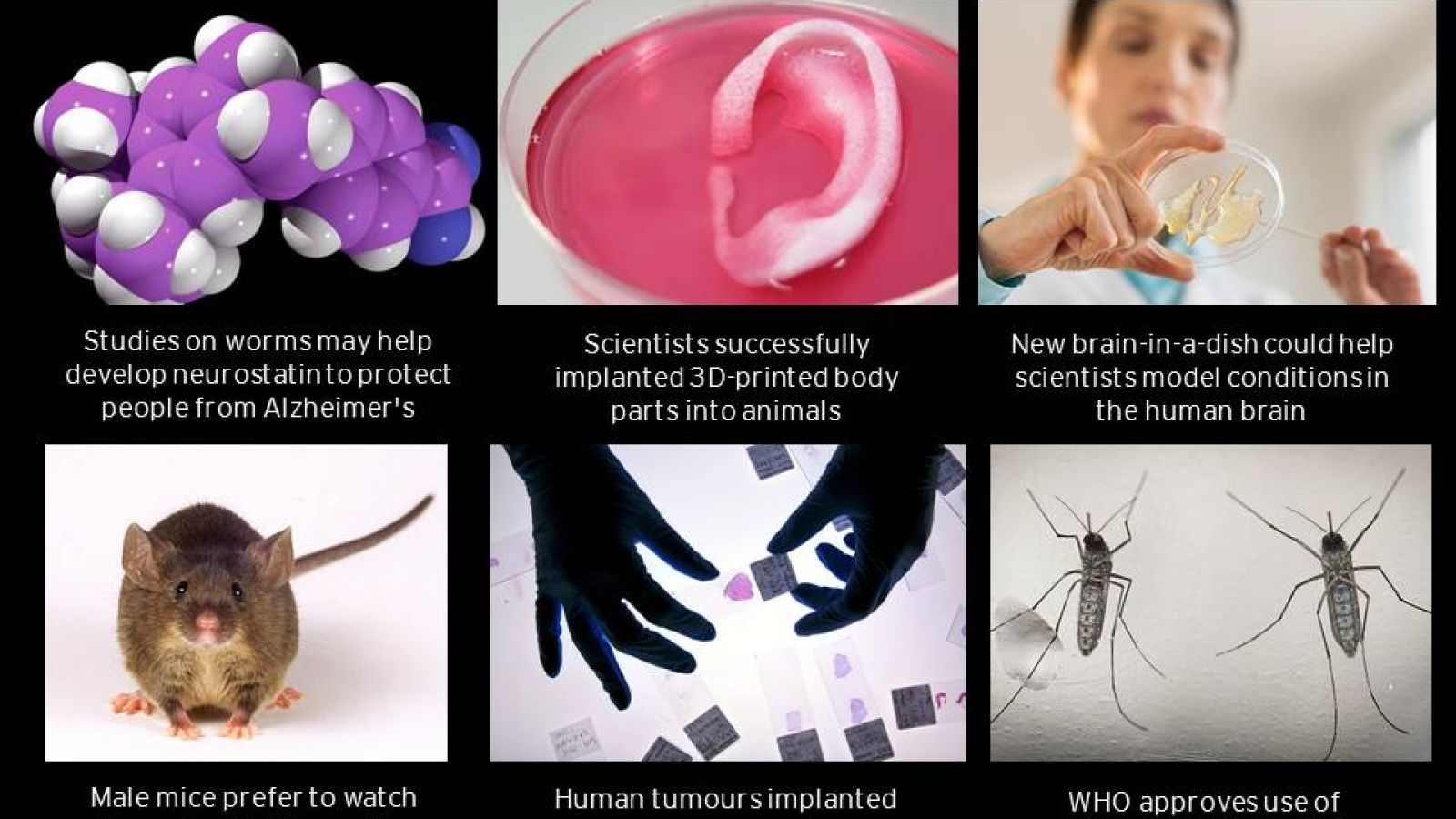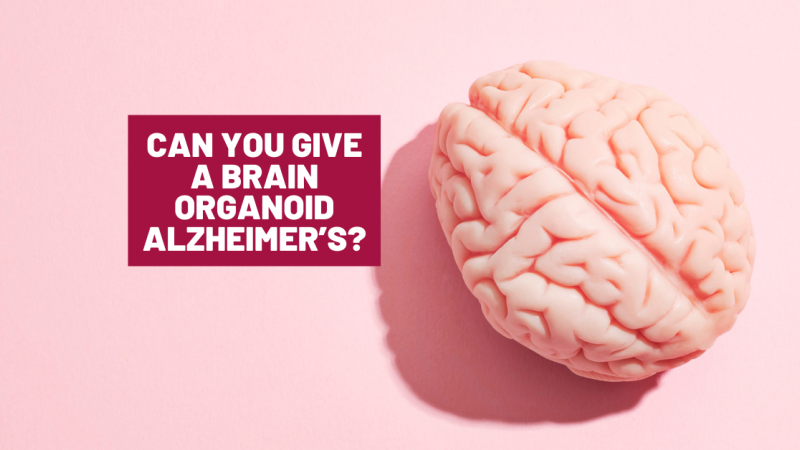Studies on worms may help develop a neurostatin to protect people from Alzheimer's
Studies on worms have found a number of drugs which prevented the early stages of brain cell death in the creatures. It is hoped that one of these drugs may eventually be suitable as a “statin for the brain” to prevent the early affects of Alzheimer’s. Beraotene - an existing cancer drug - appears to have these neurostatin qualities. Worms, and other similar invertebrates, are used in a lot of scientific research, however their use is not regulated under the Animals (Scientific Procedures) Act, as they lack a central nervous system (or equivalent) which would allow them to suffer.
http://www.bbc.co.uk/news/health-35558438
Scientists have been successfully implanting 3D-printed body parts into animals
Bone, muscle and cartilage all worked and functioned normally in the new hosts. The tissues are created with a spongelike material with micro-channels which nutrients can penetrate. When implanted into animals the plastic broke down and was replaced by natural proteins produced by the cells. Blood vessels and nerves naturally grew into the implants.
http://www.bbc.co.uk/news/health-35581454
New brain-in-a-dish could help scientists model conditions in the human brain
The cells were created from the skin cells from five human adults which have been turned back into stem cells before being reprogrammed as brain cells. These cells can be monitored through electrodes and it is hoped it could reduce the number of animals used in drug testing.
http://www.mirror.co.uk/lifestyle/health/mini-human-brains-can-think-7360080
Male mice prefer to watch other mice fighting rather than other mice having sex
When given a choice, male mice preferred to watch other mice fighting rather than videos of other mice having sex, or sniffing about. These preferences were all overpowered by a preference towards receiving morphine. The research was conducted in Keiko University, Japan.
Human tumours implanted into mice to create patient-derived xenografts
The US National Cancer Institute is turning it's research to ‘patient-derived xenografts’ (PDXs) - small chunks of human tumours implanted into mice. The tumours grow in an environment that mimics growth in humans and can be harvested thus allowing various forms of cancer to be studied in multiple animals. It is hoped that PDXs can be used to create personalised medicine and allow doctors to screen for the most-effective treatment regimen. Whilst it is thought that PDXs better capture the genetic complexity of human cancer than cells lines or genetically modified mice, most PDXs are generated in immunosuppressed mice to prevent cell rejection. Therefore genetically engineer mice with aspects of the human immune system are being researched.
http://www.nature.com/news/us-cancer-institute-to-overhaul-tumour-cell-lines-1.19364
WHO approves use of genetically modified mosquitoes to fight Zika virus
On Tuesday the World Health Organization (WHO) released a statement regarding the spread of Zika virus. The statement encouraged the use of genetically modified mosquitoes to fight the disease, however it also said that further research was needed to evaluate the new techniques.
Zika is a disease transmitted by the Aedes aegypti mosquito and whilst the disease originated in Africa, it has spread to French Polynesia in the Pacific, and to Brazil and Colombia in the last decade. More than 13 countries in the Americas have reported sporadic infections and even though the disease is relatively mild, infection in pregnant women has been repeatedly linked with a condition in babies called microcephaly and an illness in adults called Guillain-Barré syndrome.
Last edited: 9 March 2022 10:25




